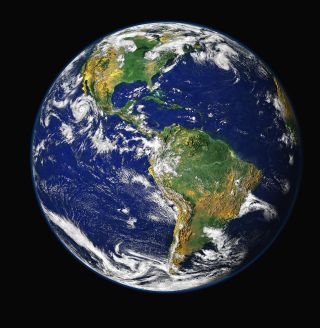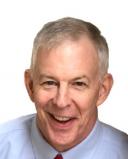Creativity
Virginia T. Norwood Changed Our View of Earth
How a female innovator succeeded in a challenging profession.
Posted July 23, 2023 Reviewed by Lybi Ma
Key points
- Virginia T. Norwood bypassed a suggestion to become a librarian.
- She became a distinguished scientist instead, developing a scanner instrumental in understanding the Earth.
- Ms. Norwood became known as the Mother of Landsat, a moniker that she appreciated.

I am fascinated by the lives of innovators such as Ms. Virginia T. Norwood, a noted scientist who passed away in March at the age of 96.
She was born in 1927 to a mother fluent in nine languages and a father who was an esteemed Army colonel. She and her father combined efforts in making her first slide rule at the age of 9. After attending five high schools with frequent family moves, she graduated as salutatorian from a school in Philadelphia.
This is where, to me with an eye toward innovation, her life becomes intriguing. Ms. Norwood’s school counselor advised her to become a librarian, perhaps a common occupation for young women in the mid-1940s.
Fortunately for the field of aerospace science, Ms. Norwood declined the librarian career route. Instead, she enrolled at the Massachusetts Institute of Technology at a time when few women entered science and went on to earn a degree in physics.
Soon afterward, she created and patented a radar-based reflector that could detect high-altitude winds. In her 30s, she was part of a team that designed a transmitter responsible for the 11,000 images sent from the Surveyor I mission to the Moon in 1966.
However, Ms. Norwood’s most laudable accomplishment was yet to come. Subsequently known as the “Mother of Landsat” by NASA, Ms. Norwood developed transformational earth-mapping technology that allowed scientists to study changes to our planet, including those related to climate and deforestation.
The Landsat program, started in 1972, features satellites flying at an orbit of 438 miles in space and taking an image of Earth every 16 days. Ms. Norwood’s work in designing the Multispectral Scanner System (MSS) earned her the William T. Pecora Award in 1979, an honor co-sponsored by NASA and the US Department of the Interior. Other awards followed, and Ms. Norwood was elected to the National Academy of Engineering this year.
In developing the MSS during her time at the Hughes Aircraft Company, Ms. Norwood was a pioneer as an innovative T-shaped leader. Such people, as described by Seelig (2009), are individuals possessing strong knowledge in at least one field as well as knowledge in innovation and entrepreneurship. Ms. Norwood may not have been formally trained in innovation given the era in which she worked, but she actively sought information from colleagues in other areas.
She spoke to scientists outside of her domain—agriculture, geology, and meteorology—to refine her ideas. “I recall that my management thought that I was nuts to be going hither and yon for help with pieces of the project; they anticipated difficulties with that approach,” she said in a 2020 article (Rocchio). “But I wanted to get the best expertise available and that ended up working well.”
Her career choice in bypassing a librarian route for physics resulted in critical contributions to science. She persisted and succeeded in innovation. The moniker given to Ms. Norwood, “the Mother of Landsat,” sat well with her. “Yes. I like it, and it’s apt. I created it; I birthed it; and I fought for it,” she said (Rocchio, 2020).
References
California Institute of Technology Jet Propulsion Lab. (n.d.). Surveyor I.
Landsat Science. (2023, March 29). Bidding farewell to Virginia T. Norwood, the Mother of Landsat.
McClain, D.L. (2023, April 12). Virginia Norwood, “Mother” of satellite imaging systems, dies at 96. The New York Times.
National Land Imaging Program. (n.d.). William T. Pecora Awards.
Rocchio, L.E.P. (2020, August 7). Virginia T. Norwood: The Mother of Landsat. Landsat Science.
Seelig, T. (2009). What I wish I knew when I was 20: A crash course on making your place in the world. HarperOne.


